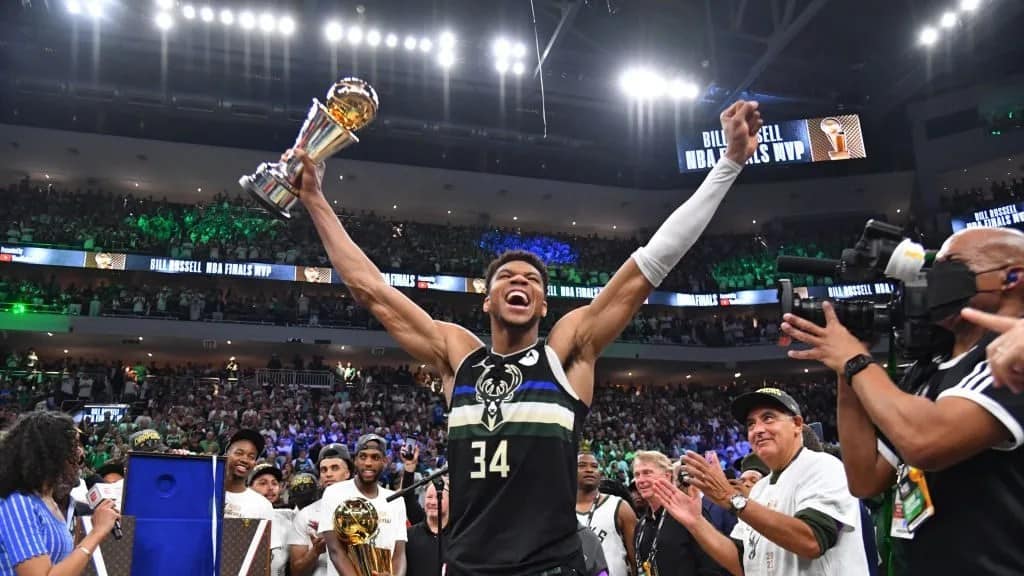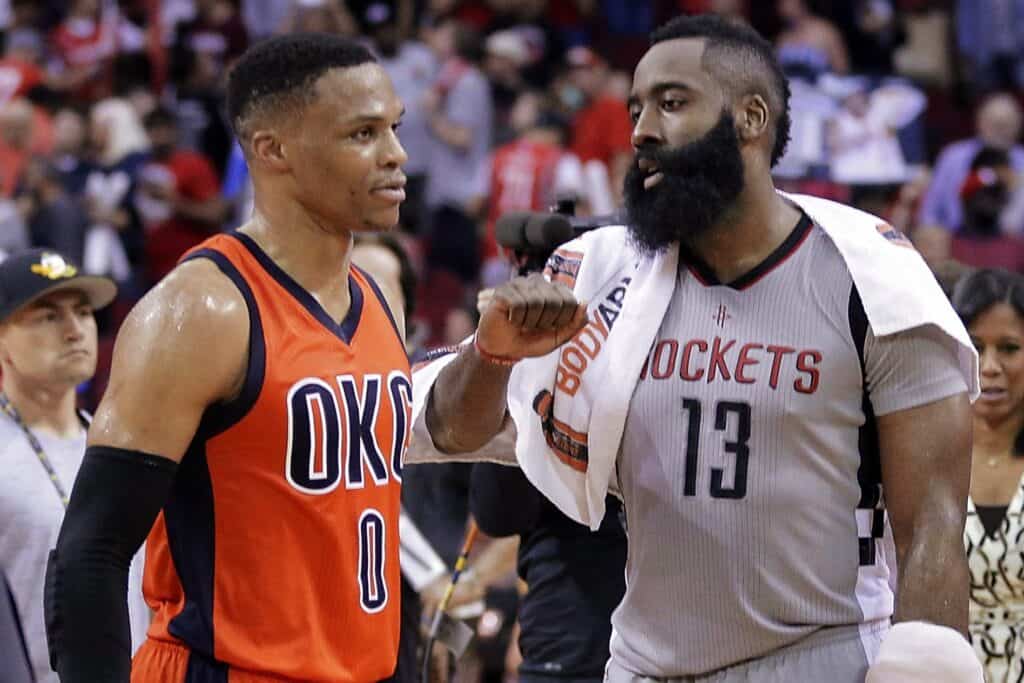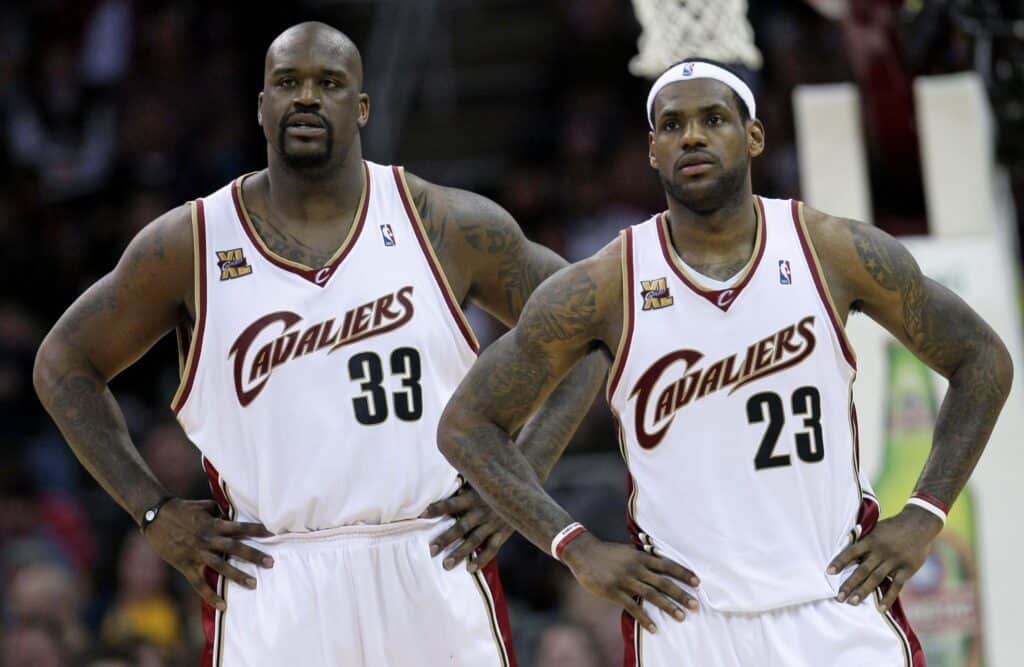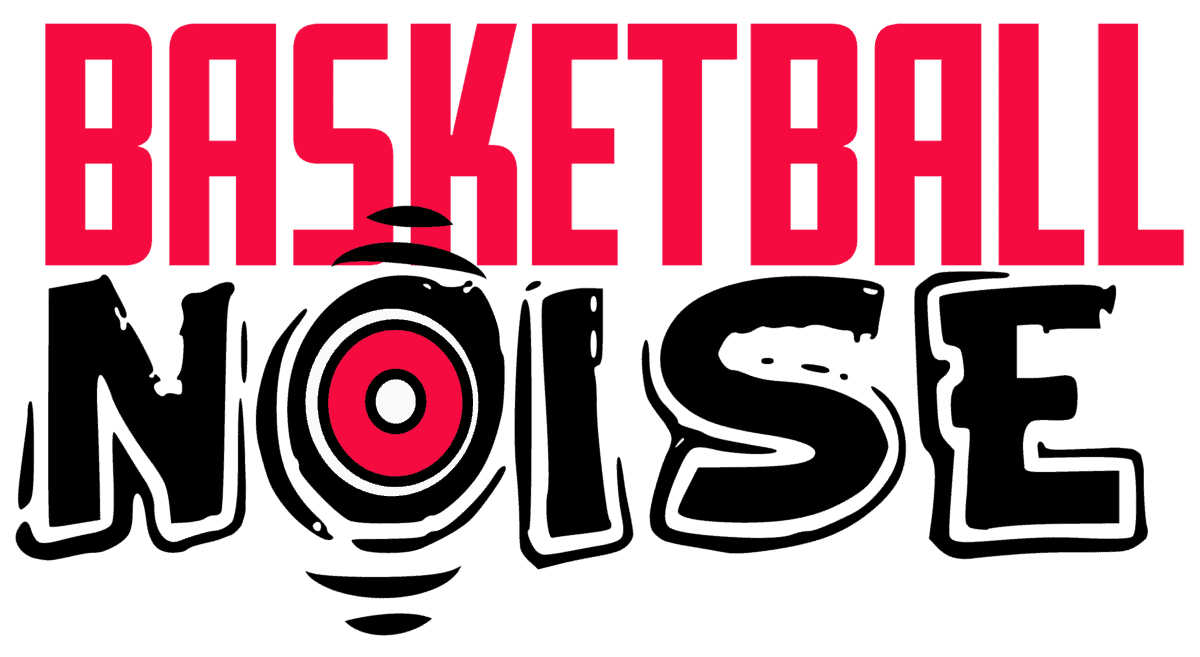The NBA Most Valuable Player award is the most prestigious award that an individual player could achieve in the regular season. Winning MVP means that you were better than the rest of the competition in terms of statistics and team success. It means the recipient was better than the flat-out best players in the world in a given season. Picking an MVP is an easy task in the eyes of fans, but the process isn’t so simple. So, how is the NBA MVP decided?
How is the NBA MVP Decided?
Since the start of the 1980 NBA season, a panel of broadcasters and sportswriters are brought together to vote on the MVP award. This applies to both the United States and Canada because the Toronto Raptors are a part of the league. Every person on the panel casts a vote for their first-place selection all the way to their fifth. A first-place vote nets a player 10 points while a second is worth seven, a third worth five, a fourth worth three, and a fifth worth one. At the end of the voting, the player with the most overall points wins the award.

Throughout the years, some players have been able to win it easily while others compete in votes that come down to the wire. It’s usually the most controversial award handed out each season.
Does This Voting Process Have Flaws?
Over the years, the NBA voting process has seen more criticism than before. One of the big issues is voter fatigue. The problem of voter fatigue has been quite the issue from fans and players alike. It has become a thing for voters to aim their vote at a player that has a solid narrative behind them rather than if they are the candidate with the best statistical resume. When the same exact player has won the award multiple years in a row, some voters get bored and want to let somebody else win it for a change, even if the player is still the best in the game. Even as recently as 2021, Giannis Antetokounmpo was coming off of back to back MVP seasons, he would go on to win the 2021 NBA title, however Nicola Jokic was voted as the regular season MVP. Had Giannis’ stats dropped off? No. Had his play dipped? No. He was the same old (if not better) Giannis who would eventually win his first NBA title that very season. Voter Fatigue.

The league took note of voter fatigue and released voting results publicly, along with media ballots starting in 2014. Some believe that the decision forced group-think tendencies while others were happy that they got to see where all these votes actually went and how they were counted. In some people’s eyes the problems increased when the league chose to place accolade-based qualifications for player contracts. Heightening the importance of the awards and putting voters in a position of having someone’s financial future in their hands. Player X may for example be able to earn more money on his next contract if he has made an All NBA Team. Obviously, players want to get paid the most possible for their play. Having an MVP award allows players to get more money than they would have without one. So, the heavy financial implications that the MVP has on players and voters alike started to become too much. It is still one of the most controversial things about the whole voting process.
Importantly the MVP is just a regular season award. Supposed to be judged solely on the players performance vs his peers during the regular season games that take place. Ignore the playoffs and season that happened last year and cut off when ballots have to be in after the last regular season game. Should Giannis and the Bucks playoff flame out in 2020 have been held against him in 2021? Should his playoff dominance and title win in 2021 go in his favor in 2022. According to the NBA – no. But the voters are people, often storytellers by trade and they crave narrative.
Winning NBA MVP is historically Important
This may seem incredibly obvious, but voters take great pride in giving the award to somebody on a team that keeps winning. Unfortunately, this isn’t very fair to some superstar players saddled with a horrible roster. Nevertheless, each player knows how important team success is to getting recognition. Only two players in the history of the league have been able to get the MVP award while suffering through a losing season. The first was Bob Pettit when he played for the St. Louis Hawks with a 33-39 overall record, the first year that the MVP was ever given out. The second was from Kareem Abdul Jabbar in 1975 with the Los Angeles Lakers and their 40-42 record. Other than that, only two other players have won the award with a winning record but without reaching 50 wins. Moses Malone did it twice in 1979 and 1982 and Russell Westbrook did it in 2017 – when he averaged a triple double for the season having seen his sidekick Kevin Durrant walk away from the team that summer. Westbrook winning that award in 2017 was the spark of major controversy about the award partly due to comments from Daryl Morey, GM of the Houston Rockets. He wanted his player James Harden to win the award and was shocked that they decided to give it to Westbrook despite poor team success. 29 points, 8 rebounds and 11 assists. This was remarkably similar to Westbrooks 31-10-10 record. Both players are point guards, so if we’re claiming that Westbrook grabbing 2 more rebounds a game was enough to propel him past Harden, we are doing something wrong. Especially when you consider that Harden’s Rockets won 8 more games in the same conference.

It came down to the narrative of Westbrook’s triple double.
Are Changes on the Way?
There really isn’t much of a chance that anything gets changed in the near future. The league seems very content with the voting process that they have created over the years and despite some outrage every once in a while (which only serves to increase eyes and ears on the NBA), this is a solid way to run things. The only way that something may change down the line is if the league chooses to look closer at the way max contracts are handled. The incentives and the financial implications that accolades get could end up getting tweaked down the line and may cause for minor voting changes. Although this is unlikely has it is something the players have voted for through the NBPA and collective bargaining agreement. Other than that, nothing should be altered. The fans have argued and debated about past winners but other than voter fatigue and narrative led decisions, few players seem to be undeserving of the treasured MVP trophy.
Has Anybody Ever Won NBA MVP Unanimously?

Yes, there has been a player who won the MVP award with a unanimous vote, which is unbelievably hard to do if you couldn’t already imagine. Steph Curry was the only player to pull this off during his fantastic 2015-16 NBA season. Nobody else in history has ever been able to do what he did that year. Shaquille O’Neal came close to pulling it off in 1999 but fell one vote short in the end, receiving 120 out of 121 votes. I am sure that singular vote haunts him at night, it could have put him into a high class of individuals in terms of the MVP award. LeBron James also finished one vote shy in 2012. These were the only two players to even get one vote shy, every other winner has been further away. I think it’s safe to say that these players, especially Curry in the 2015 year set the precedent for what superstar play should be in the NBA today. There is a reason that receiving a unanimous vote is ridiculously hard to accomplish and that, is a good thing.
